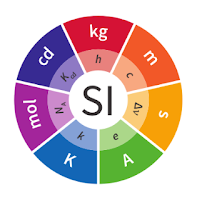What is the metric unit for measuring mass?
Measurements have been a part of our lives for a long time.
In fact, the first civilizations to record measurements were Egypt and Mesopotamia.
In Egypt rods or bars of an exact length, called standards, were kept in temples for basic measurement.
The basic unit of length was the cubit, which was about the span from your elbow to your middle finger.
However, there was a problem.
Different countries or towns had their own unique measurements.
For example, in Britain, you could measure mass using a slug, yes a slug, which was equal to about 32 pounds in the United States.
This became very confusing and frustrating.
As a result, The International System of Units abbreviated SI was established in 1960 by the General Conference on Weights and Measures in order to create an international system of measurements.
It is commonly referred to today as the metric system.
Actually, the metric system has been around for much longer but for the most part the term “metric system” refers to a SI unit.
Mass is both a property of a physical body and a measure of its resistance to acceleration. Mass is both a numerical measure of its inertia plus a measure of the amount of matter in the object.
The kilogram is the SI unit of measure for mass.
In 1795 the kilogram was originally defined as the mass of one liter of water.
In 1889, a cylinder of platinum-iridium, the International Prototype of the Kilogram (IPK) became the standard of the unit of mass for the metric system.
The kilogram is now defined as " The kilogram is currently redefined in terms of the Planck constant as approved by the General Conference on Weights and Measures (CGPM) on 16 November 2018."
The kilogram is the only SI unit of measure in which the prefix is part of the name.
The Metric System of Measurements uses the mass units: gram (g), kilogram (kg), and tonne (t).
1000 g = 1 kg
1000 kg = 1 tonne





0 comments:
Post a Comment